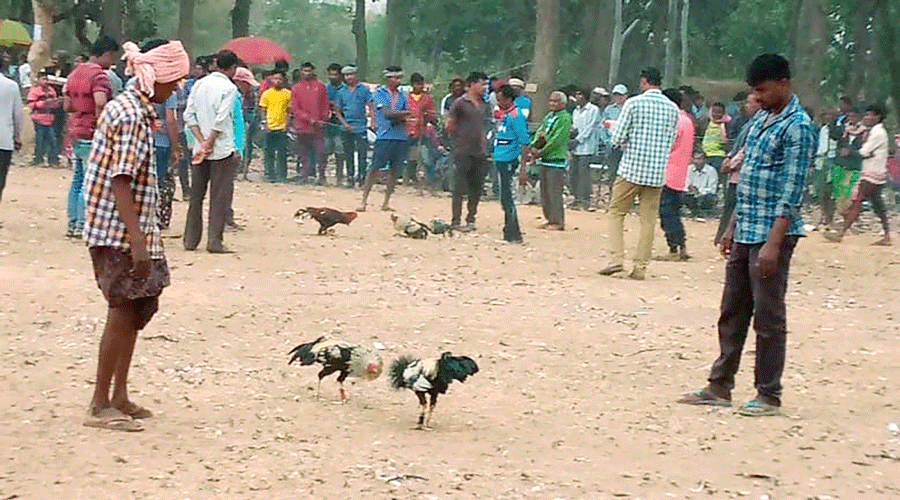Hockey’s popularity has an impact on the popular cockfighting sport associated with Makar Sankranti as well.
Cockpits in the tribal belt of the state drew huge crowds with many betters naming their cocks after Odia hockey star and Olympian Amit Rohidas who scored the first goal in India’s opening World Cup encounter against Spain on Friday.
Makar Sankranti, which the tribals of the state celebrated with great fanfare, coincides with a fading winter. Cockfights draw huge crowds in the tribal districts on this day. One “Amit Rohidas” wwon two fights for its master Chandra Murmu, 45, of Mayurbhanj before retiring hurt with injuries.
Ajay Patra, a Plus Three final-year student from Khunta in Mayurbhanj, told The Telegraph, “Amit Rohidas is a household name. The craze for him is to be seen to be believed.
“So many people have named their cocks after him. Fighting cocks, which are priced anywhere from Rs 3,000 to Rs 5,000 depending on their weight and aggressiveness, are highly prized in the tribal belt.”
The cock called Amit Rohidas fought valiantly as the crowd applauded its heroics. Murmu went back home a happy man.
“Such fights are enjoyed by all. They are a major draw on the occasion of Makar Sankranti. No one wants to miss cockfights,” said Muketswar Patra, a manager working in a shop at Khunta in Mayurbhanj.
The atmosphere in the cockpit area is invariably electrifying with most tribals getting high on the local brew before entering the arena. Liquor prices soar with a glass of brew that normally costs Rs 10, selling for Rs 20 on the day. The bets go up to Rs 1,000 for a fighting cock.
The owners tie a small knife to the feet of their rooster which goes for the kill right from the word go.
As a tradition, the winner also takes the defeated cock with him, either injured or killed. He and his relatives feast on it at night. “The feast marks the end of the festival,” said Prashant Mohanty, 64, a retired government employee of Mayurbhanj.
Though banned across the state, cockfights are common in the tribal belt during Makar Sankranti. Even the authorities don’t interfere with the tradition.
However, it is now limited only to the tribal pockets of the state.











